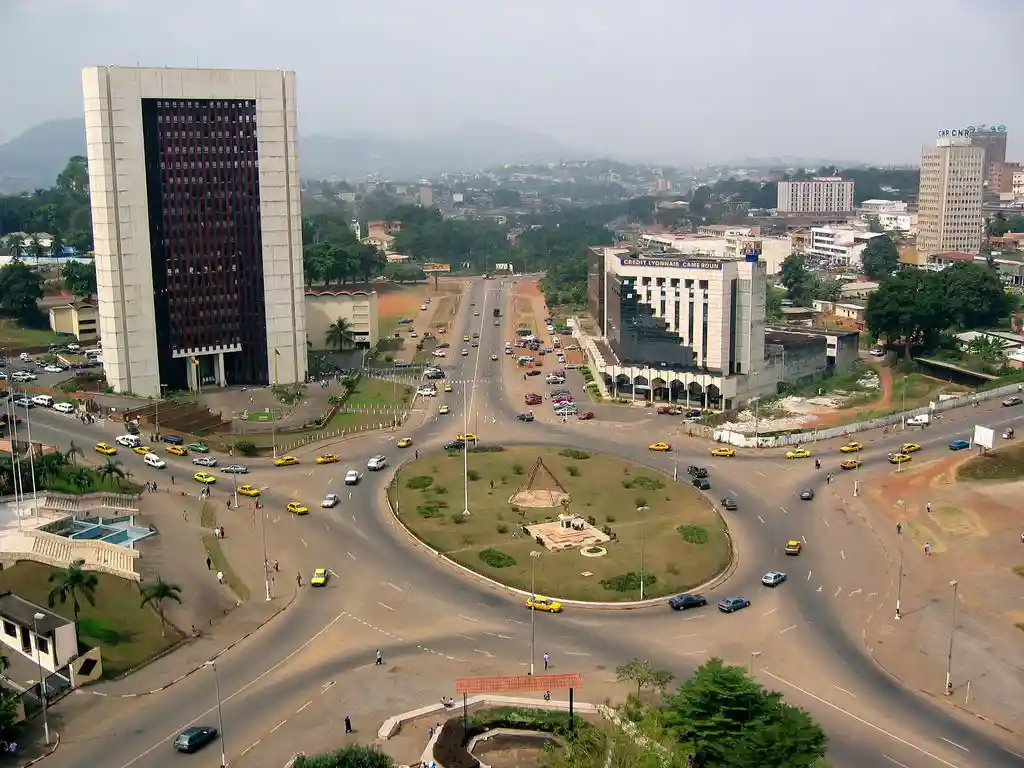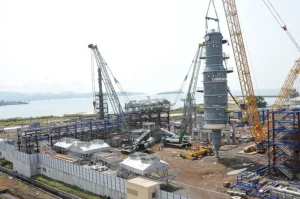Navigating the Path to Construction
Embarking on a construction project in Cameroon, whether it’s a modest residential dwelling, a bustling commercial complex, or a vital industrial facility, is an exciting endeavor. However, before the first brick is laid or the foundation is poured, a crucial administrative step must be navigated: obtaining the necessary building permits. These official authorizations, issued by the relevant local authorities, are not mere bureaucratic hurdles; they are fundamental to ensuring the safety, legality, and orderly development of Cameroon’s built environment.
This comprehensive guide aims to demystify the process of acquiring building permits in Cameroon, providing a clear and understandable roadmap for developers, contractors, and individuals alike. We will delve into the importance of these permits, the different types you might encounter, the step-by-step procedures involved, the challenges that can arise, and best practices for a smoother application process. Understanding these intricacies is paramount for avoiding costly delays, legal complications, and ensuring your construction project aligns with the national and local regulations.
Why are Building Permits Essential in Cameroon?
The requirement for building permits in Cameroon serves several critical purposes, all contributing to a safer, more organized, and sustainable construction landscape:
- Ensuring Public Safety: The primary function of a building permit is to guarantee that the proposed construction adheres to established safety standards and building codes. This includes structural integrity, fire safety measures, electrical and plumbing installations, and overall stability.1 By reviewing and approving plans, authorities can mitigate potential hazards and protect future occupants and the surrounding community.
- Compliance with Regulations: Cameroon has national and local regulations governing land use, zoning, building design, and environmental impact. Building permits ensure that your project aligns with these legal frameworks, preventing unauthorized or non-compliant developments that could face demolition or legal penalties.2
- Orderly Urban Planning: Building permits play a vital role in urban planning and development.3 They allow local authorities to monitor and control the type, density, and location of construction activities within their jurisdiction. This helps in maintaining the aesthetic appeal of neighborhoods, ensuring adequate infrastructure (roads, utilities), and preventing haphazard development that could strain resources or disrupt existing communities.
- Environmental Protection: The application process for a building permit often involves environmental impact assessments, especially for larger projects. This ensures that construction activities minimize negative effects on the local ecosystem, including soil erosion, water pollution, and deforestation.
- Quality Control: The inspection stages associated with the building permit process provide opportunities for authorities to verify that the construction is being carried out according to the approved plans and quality standards.4 This helps in ensuring the longevity and durability of the structures.
- Legal Protection: Possessing a valid building permit provides legal protection to the developer or owner. It serves as official documentation that the construction has been authorized and is proceeding lawfully.5 This can be crucial in resolving disputes with neighbors or authorities in the future.
- Facilitating Infrastructure Development: By tracking and approving construction projects, local authorities can better plan and provide necessary infrastructure, such as roads, water and electricity connections, and sanitation facilities, to support the growing built environment.
Types of Building Permits in Cameroon:
The specific types of building permits required in Cameroon can vary depending on the nature, size, and location of the construction project. However, some common categories include:
- Permit to Build (Permis de Construire): This is the most common type of building permit, required for the construction of new buildings, significant additions, or major structural alterations to existing structures. The application process for a Permis de Construire is typically the most comprehensive.
- Demolition Permit (Permis de Démolir): If you plan to demolish an existing structure, a separate demolition permit is usually required. This ensures that the demolition is carried out safely and in accordance with regulations, including waste disposal and site clearance.
- Renovation Permit (Permis de Rénovation): For significant renovations or alterations to existing buildings that do not involve major structural changes, a renovation permit may be necessary. The requirements for this permit are often less stringent than for a Permis de Construire.
- Occupancy Permit (Permis d’Habiter/Permis d’Occuper): Once the construction is complete and has passed final inspections, an occupancy permit is required before the building can be legally occupied. This confirms that the structure is safe and habitable according to the approved plans and regulations.
- Temporary Building Permit (Permis de Construire Temporaire): For temporary structures, such as construction site offices or event installations, a temporary building permit may be issued with specific conditions and a limited validity period.
- Fencing Permit (Permis de Clôture): In some areas, constructing a fence or boundary wall may require a specific fencing permit.
It is crucial to consult with the local municipal authorities or urban planning department in your specific area of Cameroon to determine the exact types of building permits required for your project.
The Step-by-Step Process of Obtaining a Building Permit in Cameroon (General Overview):
While the specific procedures and timelines can vary between different municipalities in Cameroon, the general process for obtaining a building permit typically involves the following steps:
Step 1: Project Conception and Preliminary Design:
- Clearly define the scope and objectives of your construction project.
- Engage a qualified architect or design professional to prepare preliminary architectural plans, including site plans, floor plans, elevations, and structural drawings.6
- Consider engaging a surveyor to accurately demarcate the boundaries of your land.
Step 2: Pre-Application Consultation (Optional but Recommended):
- Before formally submitting your application, it is highly advisable to schedule a meeting with the local municipal authorities or the urban planning department.
- Discuss your project plans and requirements to gain clarity on the specific building permits needed, the required documentation, and any potential issues or concerns. This pre-application consultation can save significant time and effort later in the process.
Step 3: Preparation of Required Documents:
The documentation required for a building permit application in Cameroon can be extensive and may include:
- Application Form: Obtain the official building permit application form from the local municipality.7
- Proof of Land Ownership: This could include a title deed, land certificate, or other legal documents demonstrating ownership of the land.
- Architectural Plans: Detailed and stamped architectural drawings prepared by a registered architect, including site plans, scaled floor plans, elevations, sections, and structural details.8 The number of copies required will vary.
- Structural Calculations: Detailed structural analysis and calculations prepared and certified by a registered structural engineer, especially for multi-story buildings or complex structures.9
- Soil Investigation Report (Geotechnical Study): For larger or more complex projects, a report on the soil conditions of the site may be required to ensure the stability of the foundations.
- Environmental Impact Assessment (EIA): For projects that may have significant environmental implications, an EIA conducted by certified professionals may be necessary.10
- Tax Clearance Certificate: Proof of payment of relevant property taxes.11
- Identification Documents of the Applicant: Copies of national identity cards or passports.
- Authorization Letter (if applying on behalf of the owner): A formal letter authorizing the applicant to act on behalf of the landowner.
- Other Specific Documents: Depending on the local regulations and the nature of the project, additional documents such as drainage plans, electrical plans, plumbing plans, fire safety plans, or traffic impact assessments may be required.
Ensure that all documents are complete, accurate, and submitted in the required number of copies. Any missing or incorrect information can lead to delays in the processing of your application.
Step 4: Submission of the Application:
- Once all the required documents are prepared, submit the complete application package to the designated department at the local municipality.
- Pay the prescribed application fees. Obtain a receipt as proof of payment.
Step 5: Review and Evaluation by Authorities:
- The municipal authorities will review your application and supporting documents to ensure compliance with building codes, zoning regulations, and other12 relevant laws.
- This review process may involve different departments, including urban planning, engineering, sanitation, and fire safety.
- The authorities may request clarifications, additional information, or revisions to your plans if any discrepancies or issues are identified. Respond to these requests promptly and accurately.
Step 6: Site Inspection (Initial):
- In some cases, the authorities may conduct an initial site inspection to verify the location, boundaries, and existing conditions of the land.13
Step 7: Approval and Issuance of the Building Permit:
- If your application is deemed compliant with all regulations, the building permit will be approved and issued.
- You will typically be notified to collect the permit upon payment of any final fees.
- Carefully review the conditions and validity period of the building permit.
Step 8: Commencement of Construction:
- Once you have obtained the valid building permit, you can commence construction according to the approved plans and conditions of the permit.14
Step 9: Inspections During Construction:
- During the construction process, the municipal authorities will typically conduct periodic inspections at various stages (e.g., foundation, structural framework, electrical and plumbing installations) to ensure compliance with the approved plans and building codes.
- Cooperate fully with the inspectors and address any issues or non-compliance identified promptly.
Step 10: Final Inspection and Occupancy Permit:
- Upon completion of the construction, notify the municipal authorities for a final inspection.
- If the final inspection confirms that the building has been constructed in accordance with the approved plans and regulations, an occupancy permit (Permis d’Habiter/Permis d’Occuper) will be issued, allowing legal occupation of the building.
Challenges Encountered in Obtaining Building Permits in Cameroon:
While the outlined process provides a general framework, applicants often encounter various challenges that can lead to delays and frustration:
- Bureaucracy and Red Tape: The process can be lengthy and involve multiple departments, leading to bureaucratic delays.15
- Lack of Transparency: Information regarding specific requirements, timelines, and fees may not always be readily accessible or clearly communicated.
- Inconsistent Procedures: Procedures and requirements can vary significantly between different municipalities within Cameroon.
- Corruption: Unfortunately, instances of corruption can occur, potentially leading to unfair delays or demands for unofficial payments.
- Inadequate Staffing and Resources: Local authorities may be understaffed or lack the necessary resources to process applications efficiently.
- Complex Documentation Requirements: Gathering the extensive documentation required can be time-consuming and challenging.
- Lack of Awareness: Some developers or individuals may lack adequate awareness of the building permit requirements and procedures.
- Delays in Inter-Departmental Coordination: Ensuring smooth coordination between different departments involved in the review process can be a challenge.
- Language Barriers: In some regions, language differences can complicate communication with authorities.
Best Practices for a Smoother Building Permit Application Process:
To navigate the complexities of obtaining building permits in Cameroon more effectively, consider the following best practices:
- Engage Qualified Professionals: Hire experienced architects, engineers, and surveyors who are familiar with the local regulations and procedures. Their expertise can significantly streamline the process and ensure accurate documentation.
- Thorough Preparation: Invest ample time in preparing all the required documents meticulously. Double-check for completeness and accuracy before submission.
- Early Consultation: Schedule a pre-application consultation with the local authorities to clarify requirements and address potential issues proactively.
- Maintain Clear Communication: Establish open and consistent communication with the municipal authorities throughout the process. Respond promptly and professionally to any requests for information or clarification.
- Be Patient and Persistent: The process can take time. Be prepared for potential delays and follow up politely and persistently on the progress of your application.
- Understand Local Regulations: Familiarize yourself with the specific building codes and regulations applicable in your area of Cameroon.
- Maintain Accurate Records: Keep copies of all submitted documents, receipts, and correspondence with the authorities.
- Seek Legal Advice if Necessary: If you encounter significant challenges or suspect any irregularities, consider seeking legal advice from a lawyer specializing in property and construction law.
- Foster Positive Relationships: Maintain a respectful and cooperative attitude when interacting with the authorities.
- Plan Ahead: Begin the building permit application process well in advance of your intended construction start date to avoid delays.
The Future of Building Permits in Cameroon:
Efforts are underway in Cameroon to improve the efficiency and transparency of the building permit process.16 The adoption of digital technologies for application submission, review, and tracking holds significant promise for streamlining the system and reducing bureaucratic hurdles. Increased awareness campaigns and capacity building initiatives for both applicants and authorities are also crucial for fostering a more efficient and compliant construction sector.
Conclusion:
Obtaining building permits in Cameroon is a critical but often complex undertaking. Understanding the importance of these authorizations, the different types involved, the step-by-step procedures, and the potential challenges is essential for a successful construction project. By adhering to best practices, engaging qualified professionals, and maintaining patience and persistence, developers and individuals can navigate this process more effectively and contribute to a safer, more organized, and legally sound built environment in Cameroon. The journey to construction begins with the crucial step of securing the necessary building permits, paving the way for the development and growth of Cameroon’s infrastructure and communities.17




